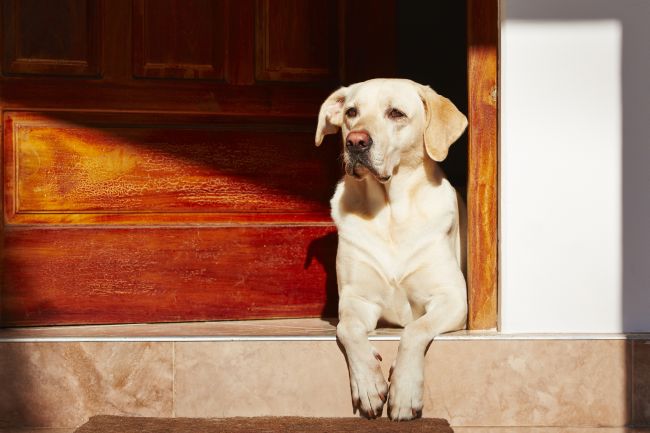
Rearing animals is not as easy as it seems. There are plenty of pitfalls, faux paws (pun intended!), and mistakes that many rookie pet-parents make. Review the list below to see what problems occur most frequently, and why they ought to be avoided.
Top Ten Mistakes
- Spontaneous Pet Purchasing. Let’s face it, we have ALL fallen in love with a furry face at one time or another, and have strongly contemplated bring him home right then and there. Animals tug on our heart strings and appeal to us with their adorable looks and winning personalities; but spontaneous pet-purchasing is almost never a good idea. Responsible pet ownership isn’t to be taken lightly, and should come with financial planning, and the ability to invest care and time to the animal’s upbringing.
- Failing to train the pet. Bringing a new pet home is an exciting phase where you just want to connect, play with and enjoy your new dog or cat. Many people skip obedience training and have to pay for it later. This is a mistake because animals learn more quickly at a young age, making training much more difficult as the animal ages. However, no matter how old your cat or dog is, it is important that they learn to respect and obey you in all circumstances, so that they can be trusted in public spaces and around other people. Failing to train a pet will just make life that much more challenging down the line.
- Giving too many treats. The point of giving a cat or dog a treat is to reinforce good behavior on their part and a positive bond between the two of you. When an owner is too generous and frequent with how they bestow pet treats, the animal will take the gift for granted. This may cause him to become more demanding and expectant, and less responsive to commands. Treats ought to be given as a reward, not to stop a dog from practicing bad behavior or acting out.
- Skipping the walks/exercise: Convenience easily becomes the determining factor for whether or not a dog is going to have a daily walk. Many people come home from work exhausted or just hoping for some “me” time, and sadly their pets suffer because of it. Obesity is one of the most common health concerns in domestic pets, and this is partially due to an extreme lack of sufficient exercise.
- Failing to socialize the pet: Have you ever seen a cat or dog flee from new comers, or bark and hiss ferociously when approached? Often new pet owners do not realize that when they fail to properly socialize a cat or dog, they are just asking for a hectic trip to the vet, or a scratch across the arm when friends visit.
- Inconsistent rules. This occurs frequently in shared living spaces, with families or roommates. If one person in the house lets the dog in the kitchen, and one person says “no” and sprays water in the dog’s face to keep him out, the lines will become blurry and your pup won’t understand what to do. Changing the rules, or being lax about discipline will only create a confused pet and potential for disobedience in the future. When you set rules, stick to them and make sure that everyone in the house does so as well. Consistency is vital for pets.
- Neglecting the pet. Pet parents often forget to consider what life will be like for a dog to be left 8+ hours home alone. This practice proves to be problematic, in that your pet will likely develop separation anxiety as well as behavior difficulties. Dogs that are left alone for long hours during the day become bored and get into trouble looking for ways to amuse themselves. The loneliness will also make a cat or dog behave in a needy and demanding way when they finally do have your attention.
- Poor nutrition. Pet food companies today often cheat their customers of the quality food their labels promise. From terms like “organic” “all natural” or “grain free,” people feed their pet what they believe will provide them decent nutrition, when often the main-stream food products do more harm than good. Though your dog or cat might munch those greasy kibbles greedily, it doesn’t follow that kibbles are the healthiest option. Research dog food companies and find out what is really being packaged for your pet; learn who you can trust to fortify their health.
- Severe punishment. Cat and dog owners generally misunderstand how their pets comprehend correction. If a “no” command is given in the act of a bad behavior, the pet will connect the action to the correction. Sadly when cats and dog are punished by having their noses rubbed in waste or puddles, or if they are slapped or “spanked” when they are naughty, they will only understand that you are angry and they should be afraid of you. Don’t fall into the punitive habits that is so frequently are adopted by pet parents; keep your corrections simple, decisive and clear and do NOT hit or harm your pet in any way.
- Failing to find a vet. Many pet parents want to the last minute before they find a vet they can rely upon. When your pet’s health is on the line, nobody wants to be digging though old business cards, or scouring references online for the best vet in your area. Know ahead of time who to contact if you run into a problem, and begin cultivating good rapport with your local veterinarian. This kind of pre-planning will save you plenty of stress in the future. Check out our suggestions on what to look for and how to find a good veterinarian.

